
Dengue Fever Outbreak in Nepal: Serotype-2 Dominates, High Incidence in Sunsari District
Nepal is currently facing a surge in dengue fever cases, with the country experiencing an outbreak dominated by Dengue Virus Serotype-2 (DENV-2), as reported by the Epidemiology and Infectious Diseases Control Division of the Ministry of Health and Population. According to a recent study, the majority of dengue cases in Nepal are attributed to DENV-2, accounting for 41 per cent of the total cases.
The Division conducted an examination of 58 samples from the National Public Health Laboratory and BP Koirala Institute of Health Sciences, Dharan, which confirmed the prevalence of DENV-2. This represents a significant shift from the previous year, where DENV-1 and DENV-3 were more commonly reported.
It is crucial to note that dengue virus (DENV) comprises four serotypes (DENV-1, DENV-2, DENV-3, DENV-4), and individuals can be infected with each serotype. Infection with one serotype confers long-term immunity to that specific serotype but does not protect against the other serotypes. Subsequent infections with different serotypes increase the risk of severe dengue, making it a matter of concern that all four serotypes are currently circulating in Nepal.
Since January 2023, Nepal has already reported a total of 5,688 cases of dengue fever. The Sunsari district has been the hardest hit, recording the highest number of cases, with 3,486 reported cases. This situation calls for immediate and effective measures to control the spread of the virus.
The World Health Organization (WHO) emphasizes that there is no specific treatment for dengue. However, early detection of cases, identification of warning signs of severe dengue infection, and appropriate case management are crucial elements of care that can prevent patient deaths and reduce fatality rates in severe cases.
Public health authorities and healthcare providers in Nepal are urged to remain vigilant, implement rigorous mosquito control measures, and provide proper guidance and support to manage dengue fever cases effectively. Increased public awareness and engagement in mosquito bite prevention are essential to curbing the outbreak and protecting the health of the population.
- Workshop on Women, Peace, and Security Concludes with Emphasis on Enhanced Cooperation
- PM Prachanda says country exporting 10,000 megawatts of electricity in a decade
- Prosperity could be achieved thru digital transformation: Minister Sharma
- Oli Slams Nepali Congress for Disrespectful Behavior in Parliament



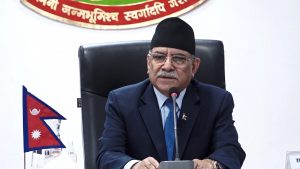
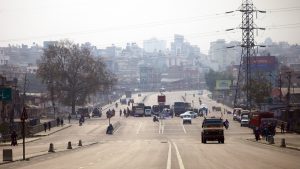
![Chaos Erupts in HoR; Physical Altercations Among MPs, Dhanraj Misbehaves with Oli [Photos]](https://english.pardafas.com/wp-content/uploads/2024/05/defd3-300x169.jpg)
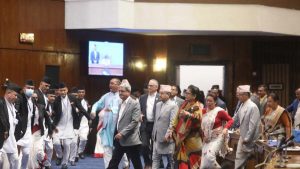
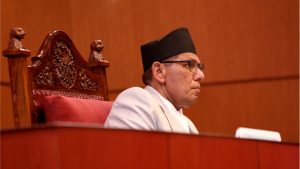
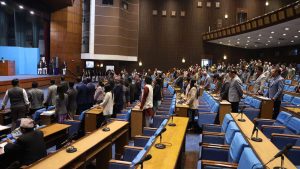






Comments